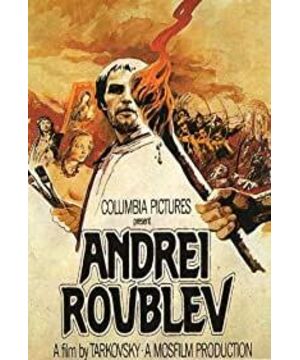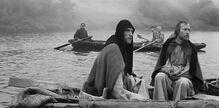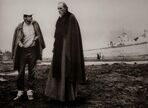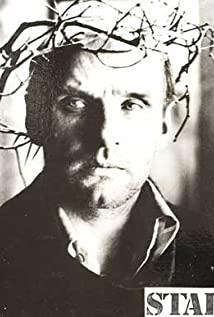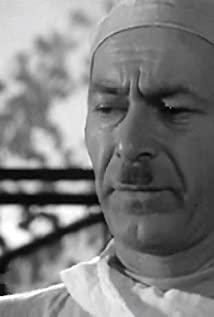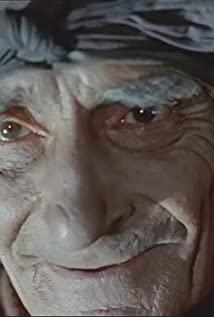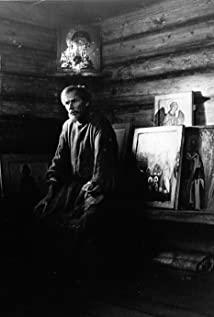The 205-minute film tells the life of Andrei Rublev, a famous icon painter in medieval Russia, interspersed with the history of the Mongols westward ravaging Russian territory in the early 15th century. The film has very life-like scenes. For example, shortly after the story unfolds, a dilapidated house is crowded with people who came to shelter from the rain. The camera moves slowly, not letting go of every face, each with different and lively faces. , and the chicken walking freely in the middle of the crowd. This scene moved me for a while. It was a breath of life that had been dimmed in reality. This fragment immediately reminded me of going there a few months ago. A nearby vegetable market, there is no gorgeous packaging here, it is always wet and rotten leaves on the ground, but it is always busier than a more gorgeous place, they know that simplicity is better than those bloated packaging and horrible advertisements. Valuable, these vegetables were just cut and hauled from a small piece of land by a nearby old man, and then quietly and eagerly squatted down to guard his two full baskets, the old man took out a cigarette, The wrinkles on his forehead were dark and deep. In fact, a load of vegetables was sold for less than ten yuan, but he had to wait all morning, or even all day. In fact, this vegetable market has everything. I came to buy plastic bags that time. There are tea-picking scenes at the entrance all day long. It is not a professional theater group. There are always seven or eight people watching, and even singing. They all think how fast the world is changing, but in some people's hearts, his world will always be there, like another tuft of grass, so green.
Art doesn't have to be glamorous, it can be a clown's performance, it can be an endless swamp, it can be a horse rolling on the ground, "Andrei Rublev" reminds me of Turgene Her husband's prose, this green and vast land, this land where deep sorrow and wisdom are buried, Andrei Rublev is in such an environment and complicated historical background. Finally got the inspiration for painting. "Andrei Rublev" is like an epic again, using a large number of extras, and the scene of countless people running under long shots is very shocking. The one who left the deepest impression on me was probably the mad woman. She found a pool of blood on the wall with a series of terrifying performances, alluding to the fact that everyone hides in the depths of everyone's heart towards this cruel and troubled world. In comparison, I think the mentally handicapped girl played by Giulietta Masina in Fellini's "The Road" is much inferior. Fellini's character looks like a clown even if it is a part-time clown, maybe Maybe it’s because of the director’s style, regional culture, and life experience, but I think a lunatic should look like a lunatic, and it can’t look like this or the other.
View more about
Andrei Rublev reviews


